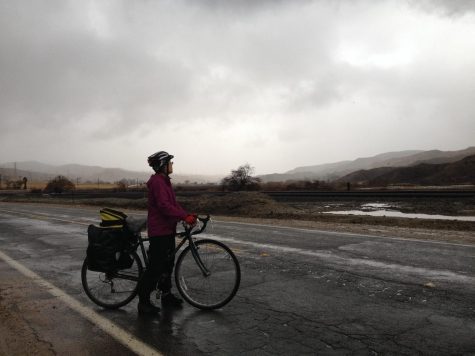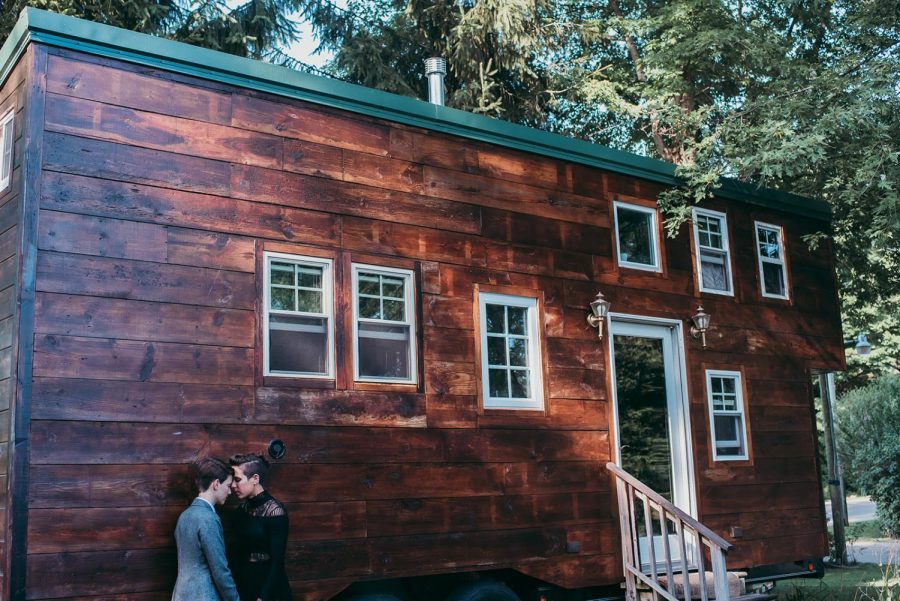What building a tiny house taught us about life during COVID-19
August 30, 2020
When we graduated from NIU we were lost. During the last years of our programs we came out as a queer couple to our conservative community in our industrial, Midwestern hometown. It did not go well. We were disoriented from the loss of our childhood connections, drained by the prospect of uncertainty and transitioning out of our university jobs into an unknown financial future.
By accident, we discovered a structure that helped us adjust to our new normal. It started with a crazy idea: building a tiny house from the ground up. To build a home, we needed to find plans and material, calculate costs and set up a series of small rituals that led to slow progress. The rhythm of the consistent, daily tasks created indispensable mental space and structure.
There was no sudden epiphany or healing, just a gradual and soothing monotony of negligible processes. When the to-do list for the house was getting small, we decided to experiment with another process: biking across the country. We started in Los Angeles and, as we progressed through the southern states, we developed the same ritualistic schedule: taking the tent down, planning a route for the day, checking our tires — small tasks each contributing to our overall mental structure. Our focus was not the outcome of a home or the goal of reaching that other ocean. Instead, we chose these activities because, within each one, we found ease and certainty.

It was not our goals, but the systems we created to reach those goals that stabilized us. New York University professor Adam Alter advocates for a system-focused instead of goal-focused perspective. Focusing on goals means success is short-lived and occurs only once you reach your goals. Focusing on the systems needed to achieve your goals creates consistent success, regardless of whether you reach your specific goals or not.
In our case, had we been goal-focused, all our endeavors would be considered failures. We did not reach the Atlantic on our coast-to-coast bike ride (the goal), we had to stop a hundred miles away because of a tendon injury. Our house still is not done — the guest bedroom needs a door. But both of us consider these endeavors successful because the day-in-day-out systems of building and biking created steadiness in our lives. We were successful because it was the process, not the product, that brought certainty.
The same structure that carried us through coming out has carried us through these past six months: systems. Being queer is substantially different from the experience of living through COVID-19, but we have found that our friends, family and we are experiencing some of the same core psychological challenges.
There is no rejection, but many of us are experiencing a loss of community because we can no longer interact in the same way. Waking up month after month to an uncertain future takes a slow and insidious toll. The financial transition we faced upon graduation is dwarfed by the monstrous challenge of navigating COVID-19 as a student taking on debt or a full-time member of the workforce. Right now we use simple structures like hiking every other day, reading a book for thirty minutes and stopping work and tasks every evening by 8 p.m. to unwind.
The systems we have relied on during the coronavirus pandemic do not involve a bicycle pump or a hammer, but they fulfill the same fundamental role: keeping us focused on what we can do in the short term and providing a sense of (small) success and structure during uncertain times.







